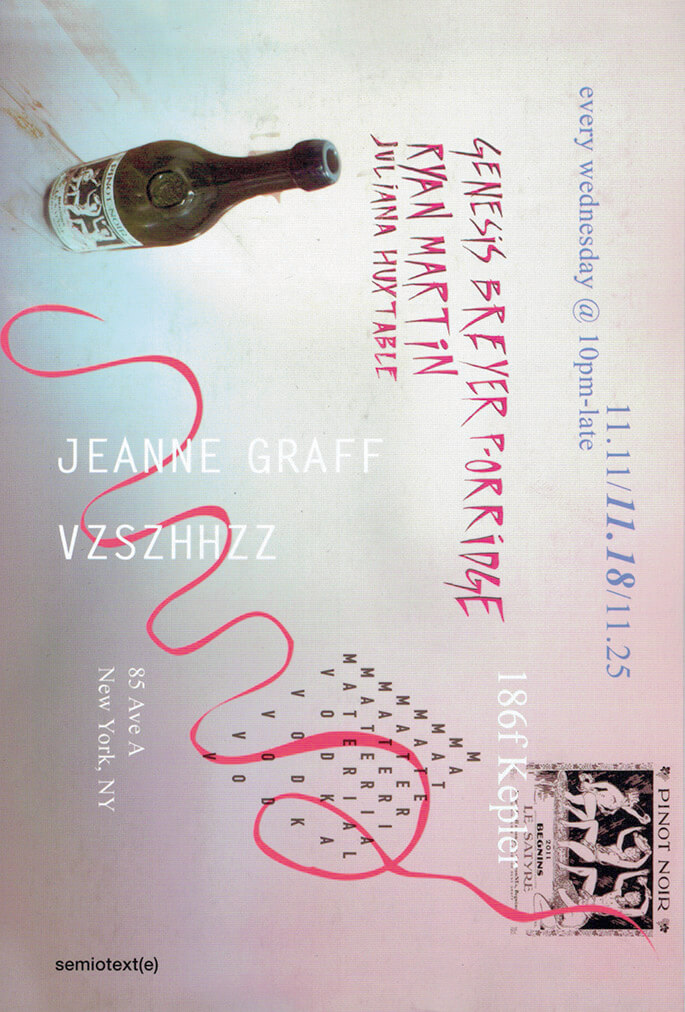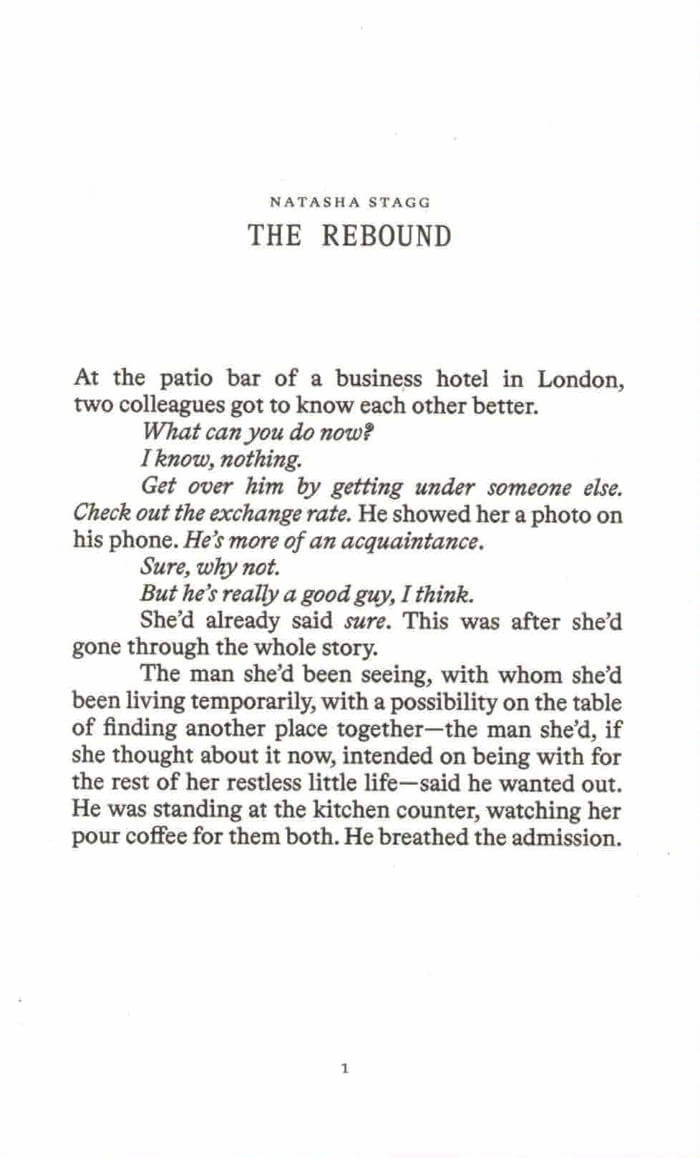
Vzszhhzz
Composed between destinations, in airplanes, trains, museums, and bars over three years, Jeanne Graff's Vzszhhzz captures the slight intersections of a loose group of artists and lawyers, restauranteurs, philosophers, wine-makers and boxers whose lives are conducted almost entirely in a second language. A loose chronicle masquerading as a novel, Vszhhzz - like Michèle Bernstein's All The King's Horses, the Bernadette Corporation's Reena Spaulings, and Natasha Stagg's Surveys - couches Graff's sharp observations in a laconic and ambient style. By not saying too much, Vzszhhzz says everything about the relation to time, cities, weather and smog that has become the lingua franca of a creative and transient life.
Writer and curator Jeanne Graff was born in Lausanne, Switzerland and lives in New York. She is a columnist for May Revue (Paris), works in a vineyard, and teaches at HEAD art school in Geneva. In 2014, Graff founded 186f Kepler, an art space without walls. She has organized numerous international exhibitions, and performs with her band Solar Lice. Graff recently completed a writing residency at Villa Noailles in Hyeres, France.
Language: English







